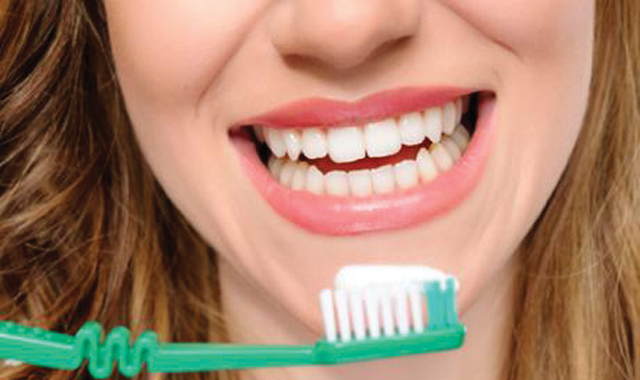Squeaky clean: Study finds sound of tooth brushing can affect thoroughness
Researchers in Japan have discovered that how effectively we clean our teeth and how satisfied we are with the brushing job we do depends a lot on the sound of the bristles scrubbing against the enamel.

Researchers in Japan have discovered that how effectively we clean our teeth and how satisfied we are with the brushing job we do depends a lot on the sound of the bristles scrubbing against the enamel.
In trials with volunteer teeth cleaners, the team has used a tiny microphone in a modified toothbrush to 'sample' the sound being made in the mouth during brushing and to modulate it and then feed that sound back to the volunteer via headphones to see what effect it would have on cleaning efficacy and satisfaction.
Trending article: Toothbrush type found to influence bacterial growth
Taku Hachisu and Hiroyuki Kajimoto of The University of Electro-Communications, in Chofu, Japan explain how modulating the brush sound affects brushing efficacy and satisfaction. The team found that if they manipulated the pitch, or frequency and loudness, of the brushing sound they could alter the volunteers' perception of comfort and accomplishment. They also showed that if they gradually increased the frequency as teeth cleaning progressed, the volunteers felt like the process was more comfortable and that their teeth were cleaner at the end of the process.
"Tooth brushing provides a 'negative reward' for users as they brush their teeth to avoid developing caries," the team explains. Many people find the task boring. "Subsequently, users do not consider the impact of omitting the action until suffering from caries or other dental diseases," the team adds.
Trending article: The top 10 dental discoveries of 2015
Their results show that it is possible to motivate users by interactively manipulating the frequency of brushing sounds, so that the task becomes more satisfying. Importantly, the system can tell, through a built-in force sensor, whether a person is brushing too hard, which can damage the gum line, and so give them aural feedback to encourage them to clean their teeth more gently.
The prototype system requires the teeth cleaner to wear headphones, which is impractical in real life. However, there are bone conduction speaker systems that might be incorporated into the smart toothbrush so that the amplified feedback loop is created in one's mouth. The team will next recruit volunteers to test the system in their comfort of their own bathrooms.
The full study, "Augmentation of toothbrush by modulating sounds resulting from brushing," was published in the International Journal of Arts and Technology.
Oral Health Pavilion at HLTH 2024 Highlighted Links Between Dental and General Health
November 4th 2024At HLTH 2024, CareQuest, Colgate-Palmolive, Henry Schein, and PDS Health launched an Oral Health Pavilion to showcase how integrating oral and general health can improve patient outcomes and reduce costs.
Episode 31: Dentsply Sirona Implant Announcements
September 30th 2021DPR’s Editorial Director Noah Levine sat down with Gene Dorff, Dentsply Sirona’s group vice president of implants and Dr. Dan Butterman to review several big announcements the company made in the arena of implants during Dentsply Sirona World 2021 in Las Vegas.